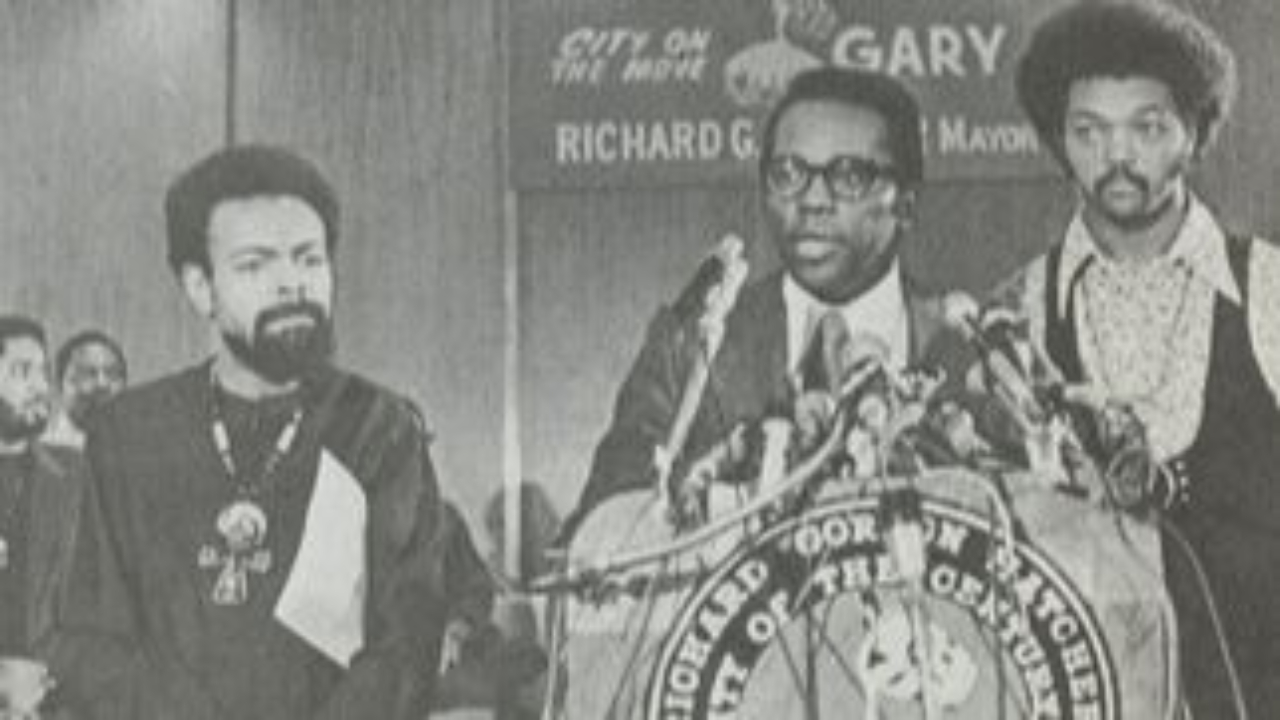The Gary Declaration: Why It Still Matters
Apr 16, 2025
What Was It?
Drafted in 1972 at the National Black Political Convention in Gary, Indiana, this declaration was a bold, uncompromising document outlining the need for independent Black political action, the rejection of blind allegiance to either major political party, and the call for radical societal transformation. It was written by and for Black people as a blueprint for liberation.
Key Themes:
- Self-Determination: The document insists that no real progress can come from dependence on white-dominated political parties or institutions. True change must come from organized, collective Black action.
- Radical Truth-Telling: It exposes the foundational flaws of the American system—capitalism and white supremacy—as the root of Black suffering and national decay.
- Rejection of Traditional Politics: Rather than choosing between Republican or Democrat, the declaration calls for independent Black politics that centers Black interests and creates new structures and systems.
- Global Solidarity: It links the struggles of Black Americans to oppressed peoples around the world, especially in Africa and the Third World, emphasizing the need for international awareness and solidarity.
- Moral Leadership: The document charges Black Americans with being the vanguard for human liberation—not just for themselves, but for the soul of America and the world.
Why This Still Resonates Today
More than 50 years later, the questions the Gary Declaration raised are still unanswered:
- Are we still relying too much on traditional political structures that were never meant to serve us?
- How do we build and sustain independent Black institutions?
- What does self-determination look like in 2025 and beyond?
- Who are today’s vanguards of Black liberation?
Key Points from the Gary Declaration
- Purpose of the Black Agenda
- Directed to Black Americans, it stems from generations of struggle and seeks self-determination and independence.
- Urges Black people to organize and lead the changes needed for liberation—no meaningful change will come from traditional white-dominated institutions.
- A Nation in Crisis
- America is in moral, economic, and political decay.
- Black communities face unemployment, under-education, crime, and institutional abandonment.
- Government systems—schools, courts, prisons—fail to serve justice or uplift.
- Beyond U.S. Borders
- The exploitation of Black people mirrors U.S. domination of non-white nations globally.
- America’s global policies reflect the same racism and capitalism harming Black communities at home.
- The Failure of Both Political Parties
- Both Democrats and Republicans have consistently betrayed Black interests.
- White liberalism and conservative politics alike have maintained systemic racism.
- A radical, independent Black political movement is necessary.
- A Call for Social Transformation
- The choice is not which candidate to back, but whether to create a fundamentally new political and economic system.
- The current system cannot be fixed—it must be reimagined.
- Black people must lead this transformation for the sake of all humanity.
- The Vanguard Role
- Black Americans are uniquely positioned—historically and morally—to lead the charge for a new, more humane society.
- The movement must be bold, independent, and visionary, rejecting dependency on white institutions.
Parallels Between 1972 and Today
|
1972 |
Today |
|
Urban decay, unemployment, underfunded schools |
Ongoing disparities in education, housing, policing, and health outcomes |
|
Disillusionment with both major political parties |
Many Black voters still feel unrepresented, with calls growing for independent or alternative political organizing |
|
Economic systems built on racial inequality |
Widening racial wealth gap; corporate exploitation of Black labor and culture |
|
Global solidarity with oppressed peoples |
Renewed Pan-Africanism, Black Lives Matter's international reach, and attention to anti-colonial struggles worldwide |
|
Distrust in American institutions |
Continuing skepticism toward law enforcement, government, healthcare, and media |
|
Drug epidemic undermining Black futures |
Shift from crack cocaine to opioids and cannabis, with criminalization and legalization debates often reinforcing racial inequities |
|
Call for fundamental change—not reform |
Ongoing demands for reparations, abolition of carceral systems, and new models of governance and economics |
Click here to read the Declaration in its entirety.
Stay connected with news and updates!
Join our mailing list to receive the latest news and updates from our team.
Don't worry, your information will not be shared.
We hate SPAM. We will never sell your information, for any reason.

